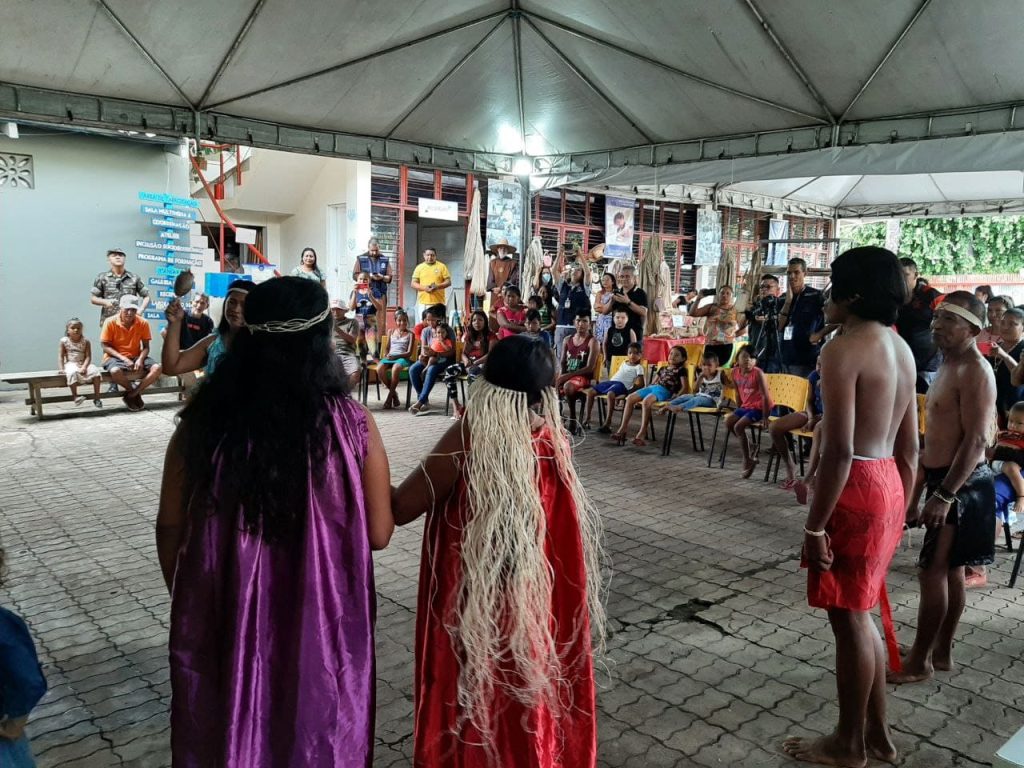The Fraternity – Humanitarian Federation (FIHF) – An organization at the service of fraternity as the name says Fraternity, from the Latin frater, means “brother”. Imbued with a fraternal and altruistic spirit, the Fraternity – International Humanitarian Federation (FIHF) was born, which welcomes all creeds, cultures and religions and spreads fraternity among all the Kingdoms of Nature.
The fraternal gesture is expressed in the actions developed by the Fraternity – Humanitarian Federation (FIHF), which created the affiliate Fraternity – International Humanitarian Missions (FIHM), to act in the international humanitarian service and, through the altruistic dedication of its members, provides humanitarian assistance to people in situations of risk, socioeconomic vulnerability and emergencies.

Two projects with activities related to education exemplify the actions developed by the Fraternity – Humanitarian Missions (FIHM): the Roraima Humanitarian Mission, through activities developed by the Indigenous Cultural and Training Centre (CCFI), and the Angola Humanitarian Mission.
The Missions express aspirations of fraternity in building a culture of peace.

The Fraternity – Humanitarian Missions (FIHM) Emergency Education manager, Anderson Santiago, highlights his impressions about fraternity in the context of education: “Being present and extending a hand, a look or a necessary item to the other, as if to say: ‘let’s keep walking.’ As brothers, in this great human family, we will be able to multiply acts of love, sharing what is most valuable to us: each other. Demonstrating that education is key to finding yourself, even in emergency situations. A poet said ‘Myself is the other.’ This is the importance of fraternity: for each other, for the common good.”

Friar Thomas, assistant to the Regional Director of the Roraima Humanitarian Mission, comments on co-responsibility in the search for the common good regarding the challenges experienced in the Venezuelan migration process and the reception of indigenous people: “These are groups of a unique culture, with their cultural diversity and vulnerability and ‘having to adapt’ in the urban space in Brazilian territory is a complex situation. The search for development and lasting solutions for migrants allows us to emerge without borders, without cultural differentiation and with this spirit of seeking to rebuild this bond as a family, always respecting the values, origin, culture and, from this, building the links of services, of fraternity within the humanitarian response,” he reflects.

For Friar Thomas, fraternity encompasses a sense of commitment and belonging – commitment to the common good, to the other, to the planet as a home, which shelters all beings. “This unites us around a project to build a new world, because fraternity, love, forgiveness, the ability to be together brings in a very strong way the principles that unite us as brothers, which is the meaning of the word fraternity. These are values and principles followed by the Fraternity – Humanitarian Federation (FIHF) in all its affiliates in their service task, whether humanitarian or even in the social sphere,” he emphasizes.
And he continues: “Responsibility for good, for peace, for the collective construction of societies for a better world, where people respect each other, tolerate each other and can rebuild this idea of a planetary, universal family, of a sense of brotherhood, which crosses all peoples, races and cultures around a common destiny.”

A date to remember
Em um outro contexto geográfico e de demanda humanitária, Madre Teresa, monja da Ordem Graça Misericórdia e servidora humanitária, que integra a Missão Angola, comenta sobre o fazer fraterno: “Colaborando no desabrochar de potenciais e tornando o cotidiano um campo de novas descobertas através de atividades que estimulam a criatividade, a alegria, a mansidão e, consequentemente um campo relacional pautado na cooperação e na solidariedade”.

“Fraternity is the anchor of humanity’s salvation… Either we are brothers or everything collapses.” These are the words of Pope Francis. On February 4, 2019, His Holiness and the Grand Imam of Al-Azhar, Sheikh Ahmed El Tayeb, signed the historic document called “Human Fraternity for World Peace and Coexistence,” in Abu Dhabi, United Arab Emirates.
A year later, the United Nations General Assembly declared February 4 the International Day of Human Fraternity, in the first year of the global health crisis generated by Covid-19.
Celebrating the date in 2022, UN Secretary-General António Guterres reflected on the importance of cultural and religious understanding and mutual respect between peoples. He said: “I am grateful to the religious leaders around the world who are joining hands to promote interfaith dialogue and harmony.” He referred to the document co-authored by Pope Francis and the Grand Imam of Al-Azhar, Sheikh Ahmed El Tayeb, referring to it as a model of compassion and human solidarity. “We need that spirit more than ever,” he emphasized.
In his speech, he highlighted the increase in hate speech, intolerance, discrimination and even physical attacks against people because of their religion or belief, ethnicity, gender or sexual orientation and classified these ‘heinous’ acts as violations of human rights and affronts to the values of the United Nations.






